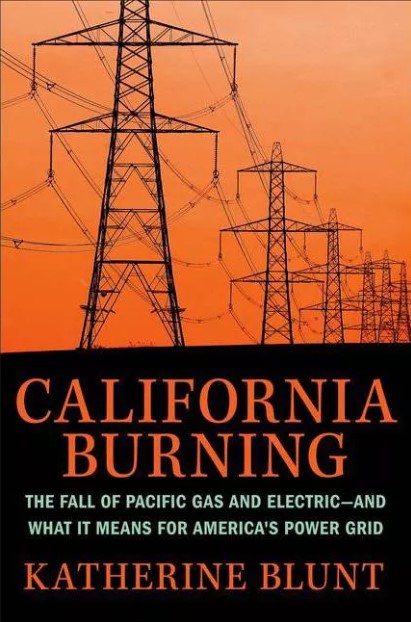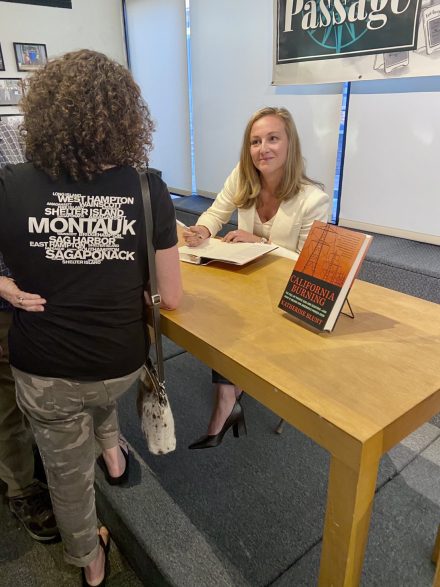Blunt has a career that exemplifies the experiential learning received at Elon, particularly in the School of Communications, and how one opportunity can change the entire trajectory of your career.
Katherine Blunt ’15 found her perfect fit when she stepped on campus for her tour of Elon University. After visiting the School of Communications and meeting some of the journalism faculty, she knew this was the place for her. In high school, she fell in love with journalism and wanted to find a college that had a program that excelled in this field.
As a student at Elon, Blunt majored in journalism and history and served as the news editor for the Elon newspaper, The Pendulum.

“I have a lot of fond memories of our production meetings, which would often go until the early hours of the morning. You don’t go through that sort of thing without making close friends,” Blunt said.

Blunt received a Lumen Prize while at Elon and spent her final two years as an undergraduate immersed in research that focused on how Adolph Hitler was described in major American newspapers from 1923 to 1933. She presented her studies at two academic conferences for history and communications.
Blunt says receiving the Lumen Prize was a life-changing experience that set her apart as she pursued her career in journalism following graduation.
Blunt was a Presidential Scholar and Communications Fellow, both of which helped her financially to achieve her goals. These two scholarship programs are among several funded through smaller donations made regularly by alumni, parents, students and others to various designations across campus, such as “Elon’s Greatest Needs.” Collectively, these gifts make a real difference in supporting students through annual giving. Blunt herself has participated in annual giving appeals by giving to the School of Communications to provide similar opportunities to current and future students.
Following graduation, she began writing for the San Antonio Express-News, and then the Houston Chronicle, where her work caught the eye of an editor at The Wall Street Journal. “There was an opportunity to cover renewable energy and utility companies in the Journal’s Houston bureau, and I jumped at the chance,” Blunt said. “I didn’t know much about the industry when I joined, but I had to learn very quickly.”
Within days of joining the paper, a massive wildfire engulfed Northern California, with investigators later placing the blame on the faulty infrastructure of power provider Pacific Gas & Electric. Her coverage of the disaster would help define her early career.
During this time, she worked with two talented colleagues to write a series of stories that examined why the company had for years failed to focus on safety. The series received significant recognition — Blunt and her colleagues were finalists for the 2020 Pulitzer Prize for national reporting. They also received the Gerald Loeb Award, which recognizes the best of business journalism, as well as the Thomas L. Stokes Award for environmental journalism.

This work was the foundation for her 2022 book, “California Burning: The Fall of Pacific Gas and Electric – and What It Means for America’s Power Grid.”
“A literary agent approached me with the opportunity, and Portfolio, a Penguin imprint, understood our vision for it,” Blunt said. “My aim was to explain as comprehensively as possible why PG&E faces such a dire set of challenges in preventing its power lines from igniting catastrophic wildfires. The answer centers in part on long-running internal mismanagement, as well as regulatory issues, political pressure and climate change.”
While the PG&E story is one of the most significant news events she has worked on so far in her career, other notable work has included coverage for the Houston Chronicle of Joel Osteen’s megachurch and an earlier coverage for the San Antonio Express News about the failure of the state’s first public-private toll road, her first major investigation. She received Texas Associated Press Managing Editors Awards for her work on both.

She points to “California Burning,” a work that has been well-received, as her most rewarding career success so far.
“PG&E made it required for senior leaders, which is gratifying, and it made the Publishers Weekly bestseller list when it first came out,” she explained.
The most challenging part was the actual writing, she said. “This is an immensely complex story, and characters come and go, this made it especially difficult to shape a clear and compelling narrative,” Blunt said.
Blunt hopes to stay in journalism and have the opportunity to write another book in the future. She feels that Elon presents so many opportunities for students to challenge themselves and those experiences help prepare them for life after graduation. “My time at The Pendulum and pursuing the Lumen research were each very instructive in how to approach big projects that I work on now as a journalist,” she said.
She feels Elon is a special place because of the relationships that you build with professors is unlike anywhere else. Every professor was truly invested in her success, she said, and this is why she believes Elon alumni are so successful.


